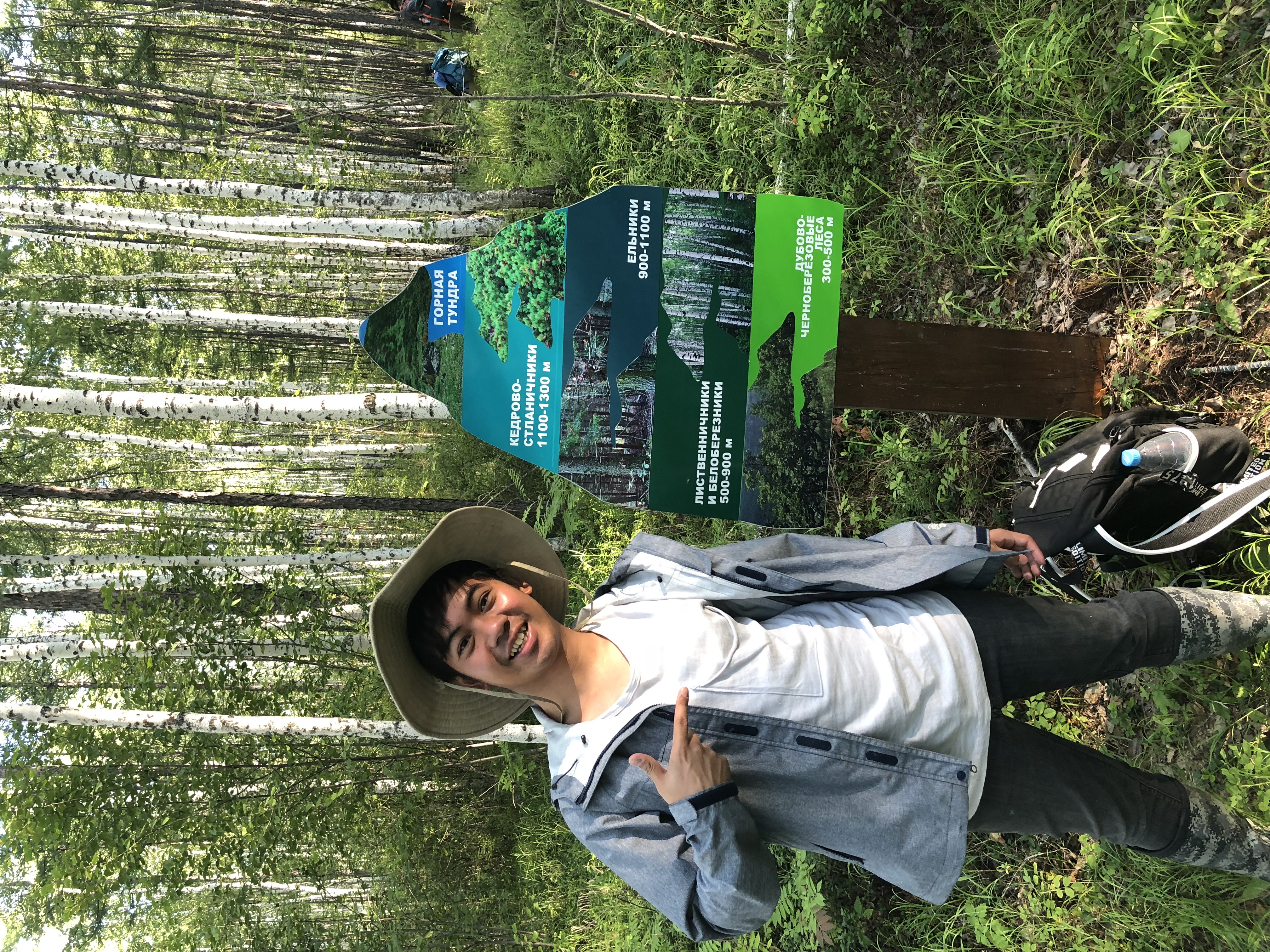PhD (expected in Sep 2021), MSc (Sep 2017)

I am from Thailand. I chose to be a GFES member because the lab is very diverse in culture, background, and languages. I would defy the lab as very international.
My research related to forest fire around the protected area in Russia Far East, to be exact “Zeya State Nature Reserve.”I am interested in merging ecology and technology to produce high-quality outputs that can help our planet. I am interested in fire and ecology and how we can use satellite or remote sensing data to tackle environmental problems. I want to know the effect of forest fire on the existing system, the risk that potential wildfires could have, and how this could impact the system in the future. However, we do not know how these problems will play out in the future or the past without obtaining relevant data. I want to be more knowledgeable about what is troubling us in the decades ahead, such as the potential consequences of climate change on wildfires, animal habitats, and environmental policies in different countries.
About GFES
The GFES provided a wonderful atmosphere from different cultural backgrounds members. I have connected with more than 10+ countries friendships from 4 different continents, including Asia, North America, South America, and Africa. Members from all over the world encourage me to work well with others. The lab gave me many opportunities to grow and lead a diverse life moment, understanding many different ideas, perspectives, and experiences and helping me with my professional goals.
The lab atmosphere helps the members exchange ideas and solutions. Concentration and communication have been exchanged all the time. We often shared information on our fieldwork, life story, and researches. GFES also has various software resources for members as well as software for education and training in raising awareness of a more inclusive and more cutting-edge science. For me, this lab is the most international and provided the most varied research interests I have ever seen.
My student life in GFES
During my second semester (April 2016) of my master program, I came to GFES lab. I was searching for a lab that could give me an interdisciplinary study at that time. With GFES, I was able to combine remote sensing and ecology. My supervisor introduced me about the Russia-based collaboration project. I suddenly agreed to join the project because I was eager to learn new things in a different place. I spent several months reviewing what Russia would look like and what literature was available. There were few studies on Russian remote sensing that dealt with forests, particularly in the Far East ecoregion. It intrigued me how this vast region of forest did not reveal to the rest of the world what was on the inside. The boreal forest in Russian Far East may hold a secret that I should investigate further. Most of the boreal ecology sciences literatures I found usually come from Canadian scientists. I did, however, hear about the Russian wildfires in Siberia and across the country. This news sparked my imagination about how forest fires and other types of disturbances occurred in The Russian Far East.
I was taking regular coursework while also researching for my master's thesis. Before I go into the field in August, I have about four months to learn about the remote sensing and get an idea how to solve environmental problems by using remote sensing technique. Prof.Tsuyuki class (Forest Developmental Study) was one of the regular courses offered during the second semester, and it inspired me to learn more about using remote sensing data to measure trees and solve problem in environmental studies. I also took the Forest Certification Class in the department to learn about how to sustainably manage forests in various parts of the world and what caused forest disturbances around the world. I came to the lab on a day when I didn't have an intensive class to experiment with the software that was available, including TNTmips, and eCognition software. I searched for the field location and papers on Russian biodiversity and forestry. After reading several papers, I decided to conduct research on forest fires and disturbances in the Russian Far East near the end of June 2016.
The GFES lab provided me with variety of field measuring equipment, including a tree height measuring tool, a GPS camera, a Garmin GPS navigator, and many other items. Throughout my master's degree studies, I made extensive use of the lab's resources, such as poster printing for the conferences and map creation, as well as various software, books, and other materials.
After finishing the third semester of my master's program, I applied for a Ph.D. program (January 2017). I wanted to continue my higher educational career to learn more about the history of disturbance in that area and to find answers to the research questions I still have after collecting field data and analyzing remote sensing results. I wanted to learn more about forest disturbances in my field location, Zeya State Nature Reserve in Russia. Even though I had a preliminary research proposal before submitting my Ph.D. application, I still needed to polish my research questions and theme for my Ph.D. project in the first semester of my Ph.D. program. Following that, I returned to the field to collect data once a year. Then, I came back to the lab to run software and analyze data in order to generate significant study outputs. The findings of the research were also presented at domestic and international conferences during my Ph.D. program.

